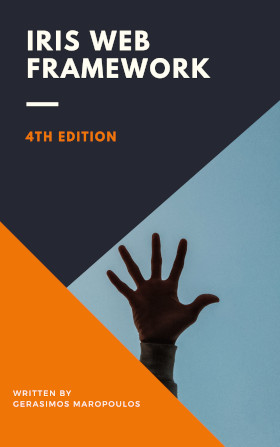This is the under-development branch. Stay tuned for the upcoming release v12.2.0. Looking for a stable release? Head over to the v12.1.8 branch instead.
Try the official Iris Command Line Interface today!
Iris is a fast, simple yet fully featured and very efficient web framework for Go.
It provides a beautifully expressive and easy to use foundation for your next website or API.
Learn what others saying about Iris and star this open-source project to support its potentials.
# https://github.com/kataras/iris/wiki/Installation
$ go get github.com/kataras/iris/v12@master
# assume the following code in main.go file
$ cat main.gopackage main
import "github.com/kataras/iris/v12"
func main() {
app := iris.New()
booksAPI := app.Party("/books")
{
booksAPI.Use(iris.Compression)
// GET: http://localhost:8080/books
booksAPI.Get("/", list)
// POST: http://localhost:8080/books
booksAPI.Post("/", create)
}
app.Listen(":8080")
}
// Book example.
type Book struct {
Title string `json:"title"`
}
func list(ctx iris.Context) {
books := []Book{
{"Mastering Concurrency in Go"},
{"Go Design Patterns"},
{"Black Hat Go"},
}
ctx.JSON(books)
// TIP: negotiate the response between server's prioritizes
// and client's requirements, instead of ctx.JSON:
// ctx.Negotiation().JSON().MsgPack().Protobuf()
// ctx.Negotiate(books)
}
func create(ctx iris.Context) {
var b Book
err := ctx.ReadJSON(&b)
// TIP: use ctx.ReadBody(&b) to bind
// any type of incoming data instead.
if err != nil {
ctx.StopWithProblem(iris.StatusBadRequest, iris.NewProblem().
Title("Book creation failure").DetailErr(err))
// TIP: use ctx.StopWithError(code, err) when only
// plain text responses are expected on errors.
return
}
println("Received Book: " + b.Title)
ctx.StatusCode(iris.StatusCreated)
}MVC equivalent:
import "github.com/kataras/iris/v12/mvc"m := mvc.New(booksAPI)
m.Handle(new(BookController))type BookController struct {
/* dependencies */
}
// GET: http://localhost:8080/books
func (c *BookController) Get() []Book {
return []Book{
{"Mastering Concurrency in Go"},
{"Go Design Patterns"},
{"Black Hat Go"},
}
}
// POST: http://localhost:8080/books
func (c *BookController) Post(b Book) int {
println("Received Book: " + b.Title)
return iris.StatusCreated
}Run your Iris web server:
$ go run main.go
> Now listening on: http://localhost:8080
> Application started. Press CTRL+C to shut down.List Books:
$ curl --header 'Accept-Encoding:gzip' http://localhost:8080/books
[
{
"title": "Mastering Concurrency in Go"
},
{
"title": "Go Design Patterns"
},
{
"title": "Black Hat Go"
}
]Create a new Book:
$ curl -i -X POST \
--header 'Content-Encoding:gzip' \
--header 'Content-Type:application/json' \
--data "{\"title\":\"Writing An Interpreter In Go\"}" \
http://localhost:8080/books
> HTTP/1.1 201 CreatedThat's how an error response looks like:
$ curl -X POST --data "{\"title\" \"not valid one\"}" \
http://localhost:8080/books
> HTTP/1.1 400 Bad Request
{
"status": 400,
"title": "Book creation failure"
"detail": "invalid character '\"' after object key",
}Iris contains extensive and thorough wiki making it easy to get started with the framework.
For a more detailed technical documentation you can head over to our godocs. And for executable code you can always visit the ./_examples repository's subdirectory.
You can request a PDF version and online access of the E-Book today and be participated in the development of Iris.
We'd love to see your contribution to the Iris Web Framework! For more information about contributing to the Iris project please check the CONTRIBUTING.md file.
If you discover a security vulnerability within Iris, please send an e-mail to iris-go@outlook.com. All security vulnerabilities will be promptly addressed.
This project is licensed under the BSD 3-clause license, just like the Go project itself.
The project name "Iris" was inspired by the Greek mythology.

















